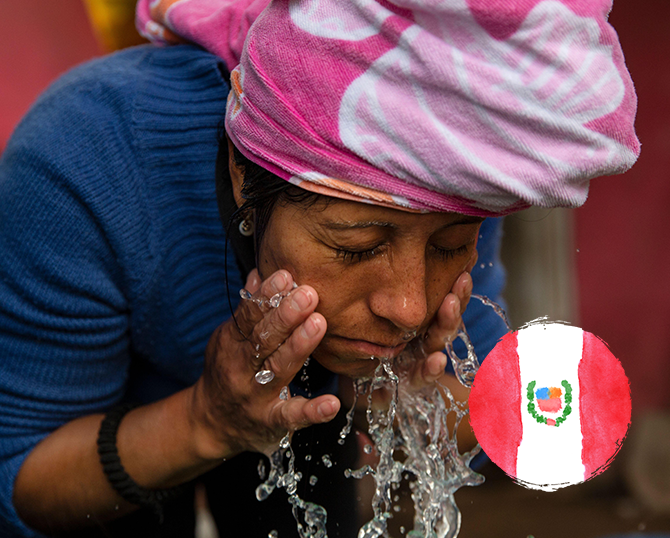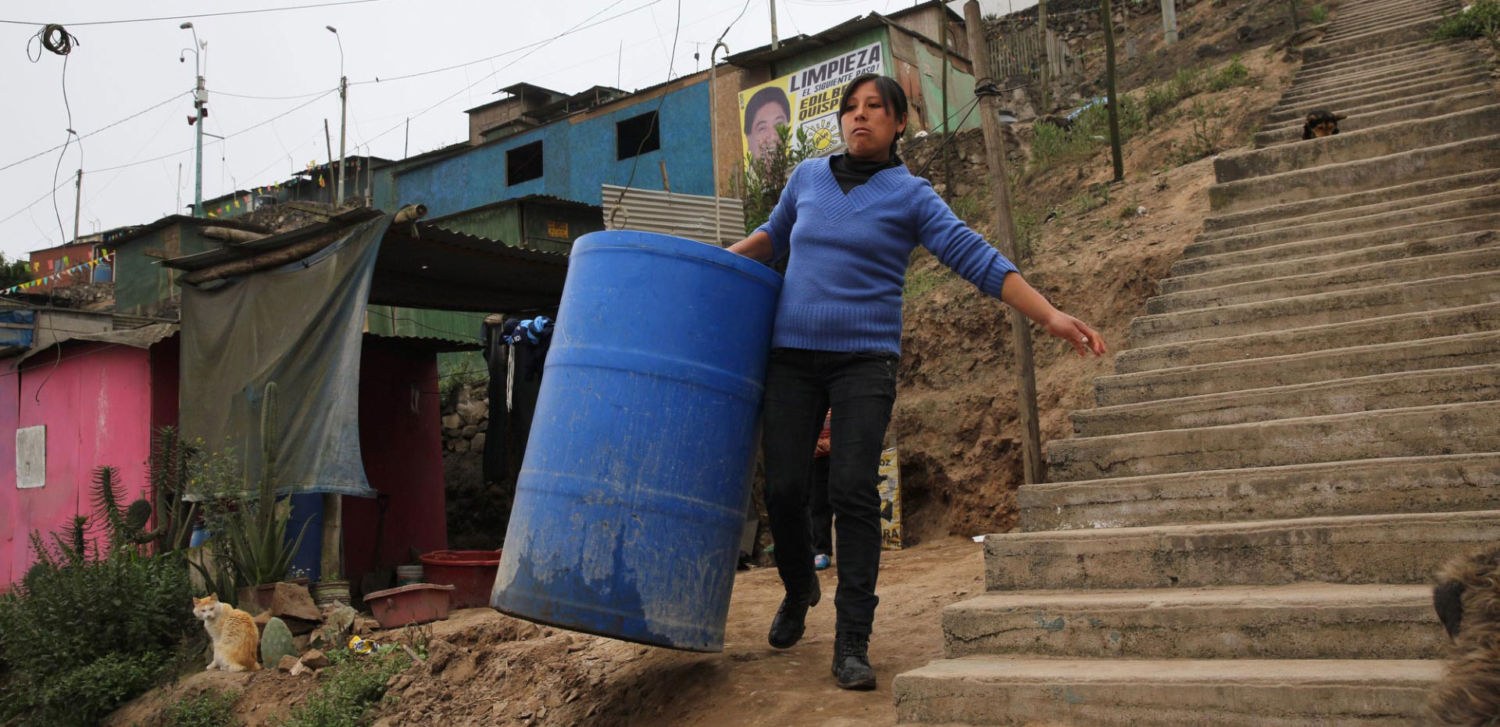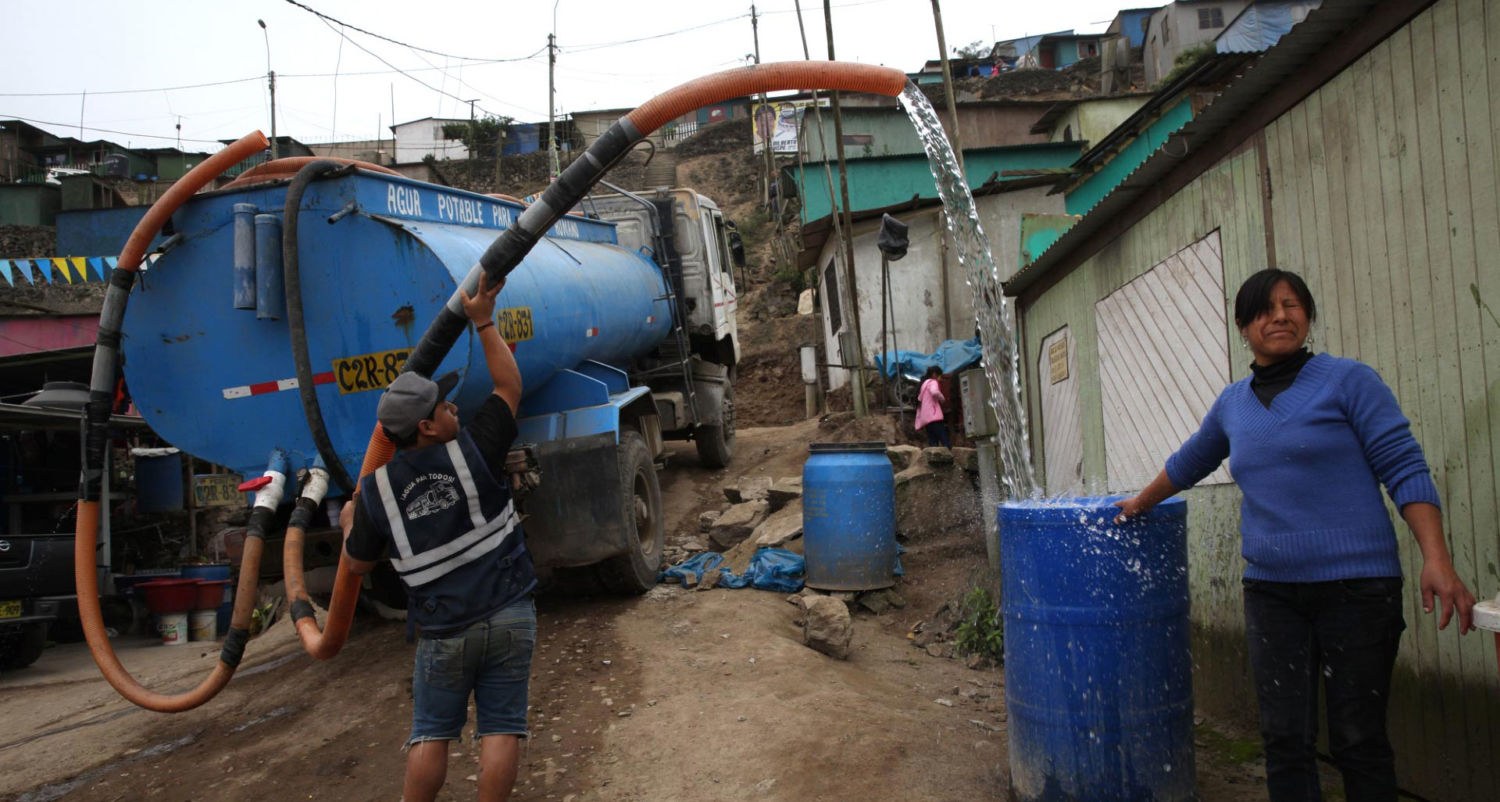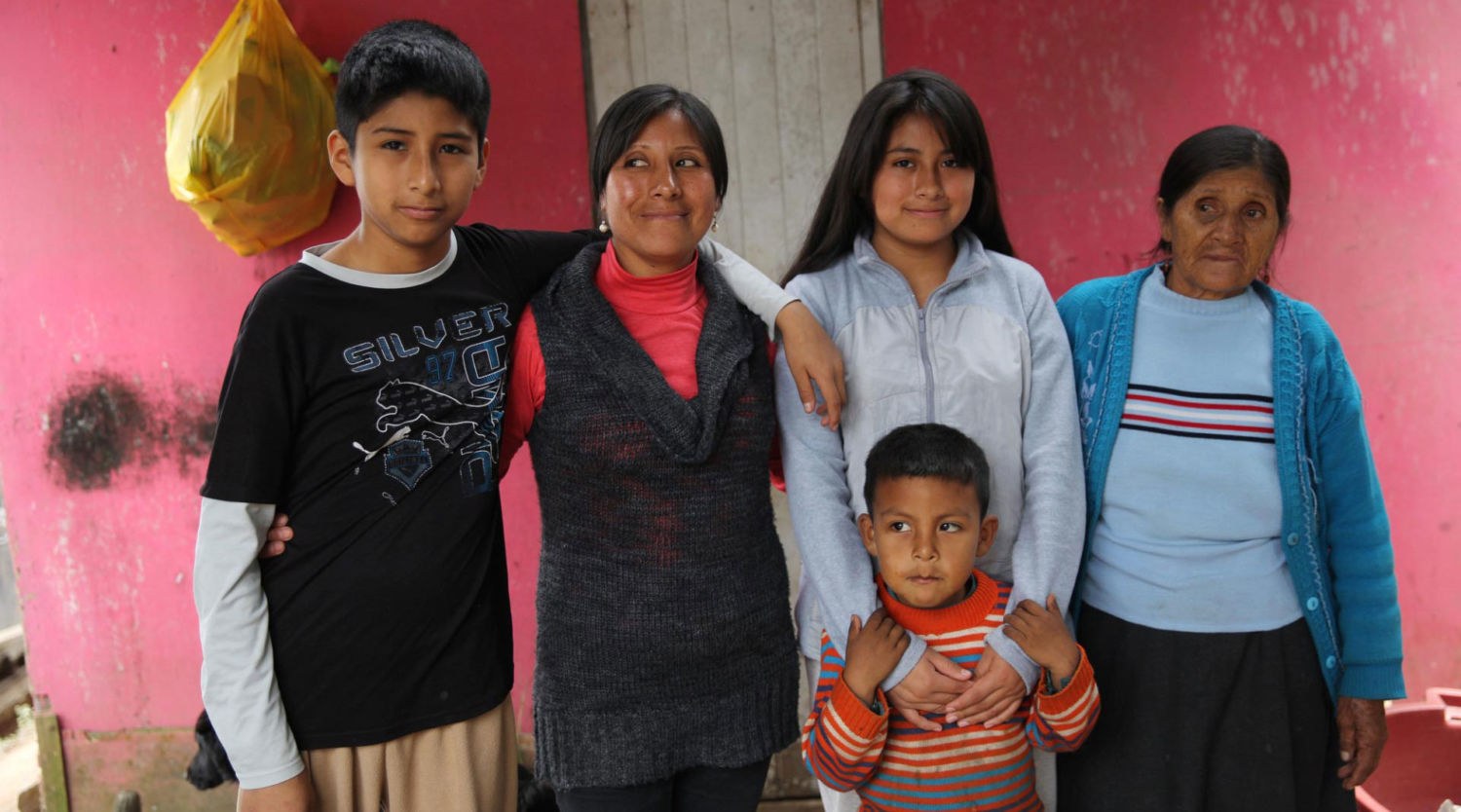Eradicating Poverty
Water is life


Of the estimated 130,000 people that live in the Pamplona region outside Lima, Peru, the vast majority don’t have running water. Marisol—who lives on the desert mountainside with her three children and elderly mother—is one of those people. She and Peruvians like her spend a huge amount of their days thinking about water, working around it, and struggling to get it. When the water trucks do finally get around to visiting Marisol’s block, she is forced to pay ten times what the average Lima city-dweller pays. But she’s working to change the paradigm, and she’s not alone.

Not content on the margins
Marisol is brave. She raises her family in a 150-square-foot home, sells her home cooking to the neighbors, and makes extra money by sewing. Even though she can never really get ahead financially, that concern always takes a back seat to the fact that she doesn’t have running water. Marisol has decided to champion change because she knows that if she doesn’t voice her concerns, she and others like her in Pamplona will be left in the margins.
Now she’s asking the tough questions—questions that often get people silenced in Peru. Like why is the state-run water service so obtuse and inefficient? And why can’t it adopt more public-private partnerships that could help deliver running water to her family and neighbors?
Dedicated to amplifying her voice
José Beteta met Marisol several years ago. He and his small but talented team at Asociación de Contribuyentes del Perú—one of Atlas Network’s independent partners in Latin America—are dedicated to amplifying Marisol’s voice and championing her cause. Supported by a US$100,000 grant from Atlas Network, Beteta and his team are doing the rigorous research and advocacy work to push for public-private partnerships, and they’re laying the groundwork for a more transparent process in the complex infrastructure issue of water services for the people of Pamplona Alta.
“These water trucks have all the power. They usually charge a set fee, but really they can charge anything they want.”
A chaotic status quo
On the day the Atlas Network team visited with Marisol, she and her mother spent a grueling five hours waiting for the water truck. That same water truck had accidentally run over and killed a child directly in front of her a few months before. These water trucks have all the power. They usually charge a set fee, but really they can charge anything they want. They sometimes keep a set schedule, but really they come whenever they want. Today, the truck was late.
The entire process is chaotic and completely inefficient. Words alone can’t describe just how disheartening the whole situation is for the entire community. That’s why Atlas Network wants to share her story—and that’s why Doing Development Differently, our new initiative to give people the tools they need to lift themselves out of poverty—is so important.

Addressing problems, finding solutions
Marisol’s situation is an urgent one. Her mother is sick from malnutrition. Her youngest son, Ronald, has a severe tooth infection from the lack of water for dental hygiene. Despite the challenges, her family is a blessing for Marisol. She lights up when she talks about the joy she feels from raising her children and supporting her mother. And she never complains about her lack of material resources. Access to running water would revolutionize her life. Not only would it mean better health for Marisol’s family, but spending a fraction of the time and money she currently does would mean more time with her children, more hope for a prosperous future, and more dignity for this hard-working woman.
Peru needs free-market solutions to its water infrastructure problems, and Peruvians such as Marisol need Asociación de Contribuyentes del Perú to advocate for them. Over the last few years, Atlas Network’s investment in their research and advocacy has given them the resources they need to take their work to the next level. With this support behind them, José Beteta and his team are empowered to push for policy changes that will provide both water and freedom to Marisol and her neighbors.
